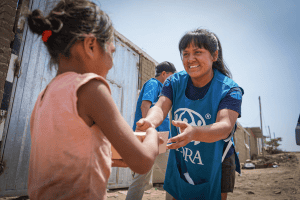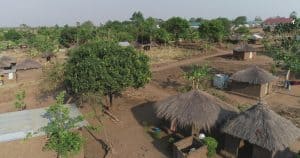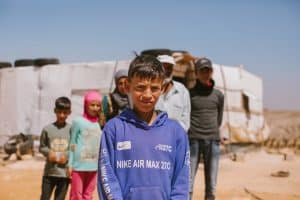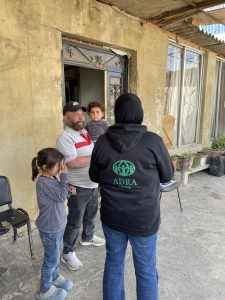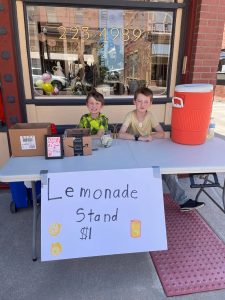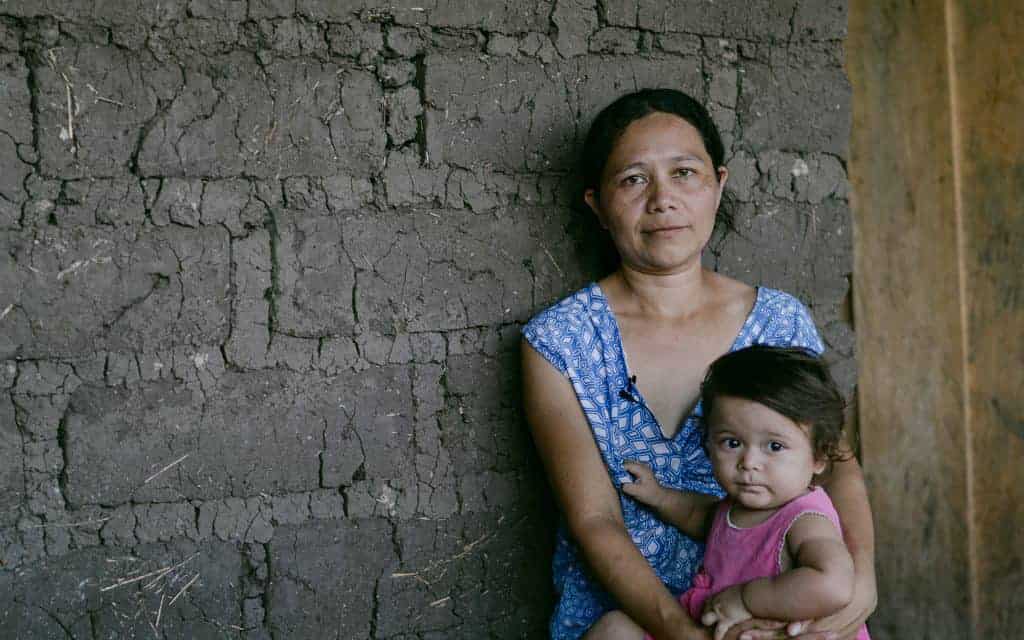
A dry spell in the place of a rainy season is rarely good for the farmers and communities who depend on agriculture for their food and livelihoods. When expected rain doesn’t arrive, a lean season is sure to follow with limited produce to eat and sell for income.
This is a tough enough reality for those who must do their best to stretch the last harvest through the lean season, but what happens when the rain doesn’t return?
- With more parts of the world now experiencing drought from back-to-back years without sufficient rain, the agricultural calendar is often much shorter with less bountiful results.
- When communities have no opportunity to recover from one lean season before they are faced with another, livelihoods are lost and hunger quickly becomes a dire and dangerous threat.
- Farmers must find new ways to farm. ADRA works with communities to introduce crops that are more resistant to crops and teach new methods to make the most of what they have. For example, hillside gardens in Madagascar put gravity in charge of irrigation with staggered steps dug into the dirt that allow water runoff to work its way down through the crops.
“Sometimes it rains, sometimes it doesn’t,” Juana tells us.
Juana lives in a part of Honduras known as the Dry Corridor and she is staring up at the cloudless sky searching for signs of rain. As usual, there are none to be found. The sun continues to shine, and her crops continue to whither.
“When it doesn’t rain, it is very difficult,” she continues.
What’s left of Juana’s garden is beginning to look like the surrounding wasteland that threatens to overrun it. Her entire backyard is rough, untilled, and dotted with boulders and clumps of thistle. Only a few chili pepper plants remain.
Here in the Dry Corridor, it is common for communities to experience six months or more of drought at a time. Many in the area depend on agricultural work to provide for their families, so the extended drought conditions kill job opportunities in addition to crops.
All that remains is to stare up at the sky and hope.
“There’s not much work here. If there is a crop, we will try to harvest it,” Juana says. “My husband gets paid for some work but there is no regular source of income.”
With limited opportunities, Juana and her husband try to earn money however they can. She does her best to coax life from the garden while also caring for Jasmine, the couple’s one-year-old daughter. He searches daily for odd jobs—ranch work, manual labor, farming when possible—but work can’t always be found.
Several households in Juana’s community saw renewed success in their gardens when they partnered with ADRA to learn climate-specific techniques for growing.
“I have seen what ADRA is doing and I would love to be a beneficiary,” she says. “It would be great to have ADRA’s help. I would be able to grow tomatoes and green peppers and green beans.”
In the region, tomatoes have become a particularly successful cash crop. One community member has earned in one month what they typically earn in an entire year!
“I’d love to see developments here, too,” Juana says. “I want to get back to work and use the water tank and grow the crops. With the income from tomatoes I will be able to buy what I’m missing in the household.”
Mostly, Juana wants to raise her daughter to be happy, healthy, and well-educated.
“When I was a girl, I wanted to have a better life,” she adds. “This project will really help make those dreams a reality for my daughter.”


